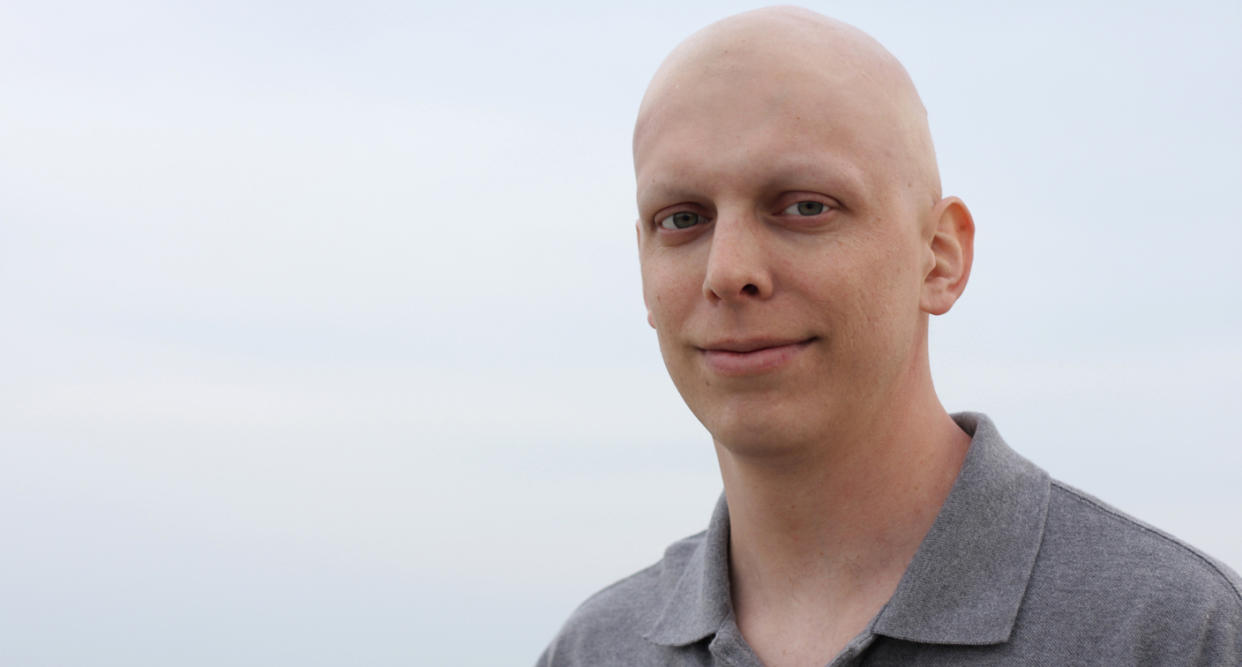'Nobody deserves cancer': There's a lung cancer stigma, and it's making people sick

August 1 is World Lung Cancer Day. This year’s focus is about highlighting new lifesaving advancements in lung cancer.
Learning you have cancer can be overwhelming and terrifying. It can also be a difficult and emotional diagnosis to share with others. Unfortunately for people with lung cancer, there’s an added layer of stress, thanks to a pervasive and harmful stigma associated with the disease.
Lisa Przybyla tells Yahoo Lifestyle that she was “shocked” to learn in March 2017 that she had stage IV lung cancer. Przybyla had been grappling with shoulder pain and sinus issues, and underwent a battery of tests to try to reach a diagnosis. “Everybody told me I didn’t have lung cancer,” she says. “I don’t fit the profile.”
Once she came to terms with her cancer diagnosis, Przybyla began telling her coworkers. “The first thing I got from most people is, ‘I didn’t know you smoked!’ or ‘Did you smoke?’” she says. “People are implying that you brought it on yourself. It shouldn’t matter if I smoked or not. You don’t get that question if you have other types of cancer.”
Donna Fernandez experienced a similar reaction from people. She was diagnosed with stage IV lung cancer in October 2012 after she inexplicably began gaining weight. “I had a tiny knot that had come up on my collarbone a few weeks earlier,” she tells Yahoo Lifestyle. “I blew it off, but the doctor ordered a CT scan and I was eventually diagnosed.” Fernandez says she also gets the smoking question when she shares her diagnosis with others. “I get asked immediately, ‘Oh, did you smoke?’” she says. “Most of those people only knew me as a nonsmoker and just couldn’t imagine me smoking.”
Those seemingly innocent questions can have an impact on patients. “Even two and a half years later, I’m not comfortable telling people that I have lung cancer,” Przybyla says. “There’s always a negative connotation, and I always find myself explaining that my type of lung cancer is caused by a gene mutation. But it shouldn’t matter.”
Fernandez says that she “hates” the smoking question because she’s “not proud of the fact that I smoked.” But she was also “really proud” of herself for quitting. “It’s just so discouraging because everybody blames this disease on the person that has it,” she says. “I know I don’t get as much sympathy as the people who have breast cancer and yet I’m way more likely to die of my disease.”
The lung cancer stigma can have a profound impact on patients, Jacob Sands, MD, an oncologist at the Dana-Farber Cancer Institute and national volunteer medical spokesperson for the American Lung Association, tells Yahoo Lifestyle. “When people ask patients if they smoked, internally I think they’re convincing themselves that they’re not at risk and won’t get lung cancer, too,” he says. “It’s not true and it’s harmful and painful for patients to hear.”
Sands says he often sees patients who “put a lot of blame” on themselves. “Psychologically, it’s so hard for them to hear these kind of comments, and it’s hard to see,” he says. “People come in for treatment and almost feel like they deserve to have cancer. The way they’re treated further enhances that.”
A negative mindset can impact a patient’s treatment, Sands says. “People who are able to sit, listen, and make decisions in a normal conversation… it helps a lot with their care,” he says. “With people who are feeling completely overwhelmed and like they don’t deserve to do well, it does impact office visits. They’re also more likely to develop depression.”
Sands stresses that it’s important for everyone to do their part to try to erase the lung cancer stigma. “Anyone with lungs can get lung cancer,” he says. “Making people feel like they deserved to get cancer is just so unfair.”
Pryzbala agrees. “Nobody deserves cancer,” she says. “You shouldn’t feel like you have to explain whether you smoked or didn’t smoke. You have cancer.”
Read more from Yahoo Lifestyle:
What are brain-eating amoebas — and how can you protect yourself?
Mosquito-borne virus that causes brain swelling, death in humans detected in Florida
People are drinking collagen powder for its anti-aging benefits — but how safe is it?
Follow us on Instagram, Facebook and Twitter for nonstop inspiration delivered fresh to your feed, every day.
